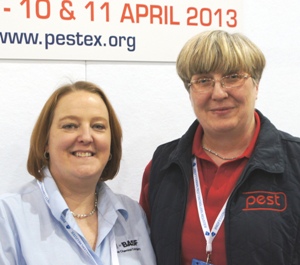The PestEx seminar programme kicked-off with presentations from three different organisations on varying aspects of the UK pest control market. Each shed new and revealing light on the aspects covered.
Local authority sector records cut-backs
First-off was Simon Forrester, chief executive of the British Pest Control Association (BPCA). Simon presented the initial findings of their latest survey of local authority pest control activity conducted under the Freedom of Information Act – this recorded the period ending April 2012. This was the second time this now annual survey had been conducted (See Pest report) so it was now possible to see trends emerging.
|
The results showed, not surprisingly, considering the financial plight they face, that 21% of local authorities lost staff over the year surveyed, 7% increased staff, 18% contract out their pest control services and sadly, 35% do not offer an in-house service. Asked if they saw themselves continuing with this service, 92% said yes, 6% no and 6% did not know. A trend which was echoed in the BASF/Pestsurvey which is, in effect, nearly one year on as it reports on results recorded in early 2013. Their findings also revealed that call-outs per authority declined by an average of 10%. Rat call-outs declined by 57%, mice by 42%, mammals by 50% and ants by 19%. Wasp call-outs showed an increase of 7%, but remember this does refer to the far better wasp year of 2011. The public”s perception of pests Further questions were asked, but amusingly, when asked 57% of householders would least like to have an insect infestation whereas only 38% plumped for a rodent infestation. National pest management survey |
|
|
Only those who are the sharp end of pest control – owners, managers and technicians in private companies and local authority pest control units as well as self-employed pest controllers – are invited to participate via an online questionnaire. Undertaken in February and March 2013, once again the survey had a good response rate with almost 300 replies and there was a balance representation across the entire industry. Review the 2011 results and/or the 2012 results. One of the key findings was that whilst the majority of pest control professionals remained optimistic about the immediate future the degree of optimism was definitely lower than in the previous two years. A higher proportion of people than previously were neither openly optimistic, nor pessimistic, although the proportion of pessimists remained the same. This suggests greater uncertainty rather than seriously increasing worries over pest control prospects. As previously, levels of optimism are particularly high among private companies with the self-employed noticeably more uncertain over work prospects in 2013. Not surprisingly, given continued budget pressures, local authority pest controllers continue to be markedly less optimistic, more uncertain and more pessimistic than the other two groups. Looking at the level of pest control activities, the survey reflected the terrible 2012 wasp season with a massive 83% net decrease in wasp jobs recorded. Also down were cockroach and ant activities with rats, mice and bed bugs recording the biggest net increases. The net increase in mouse work was 29% with bed bugs and rats both at 26%. The net increases in rodent control work are significant as rodent control has consistently accounted for around half of all pest control work conducted by Mr or Ms Typical pest professional. A full report on the findings will be published in the May & June edition of Pest magazine. |
|


